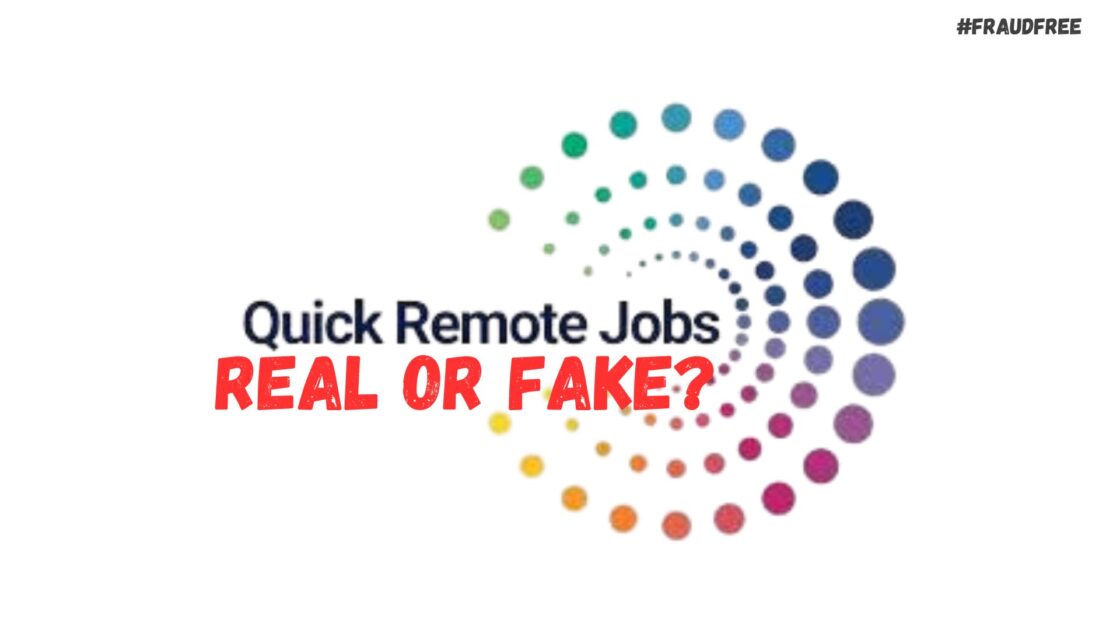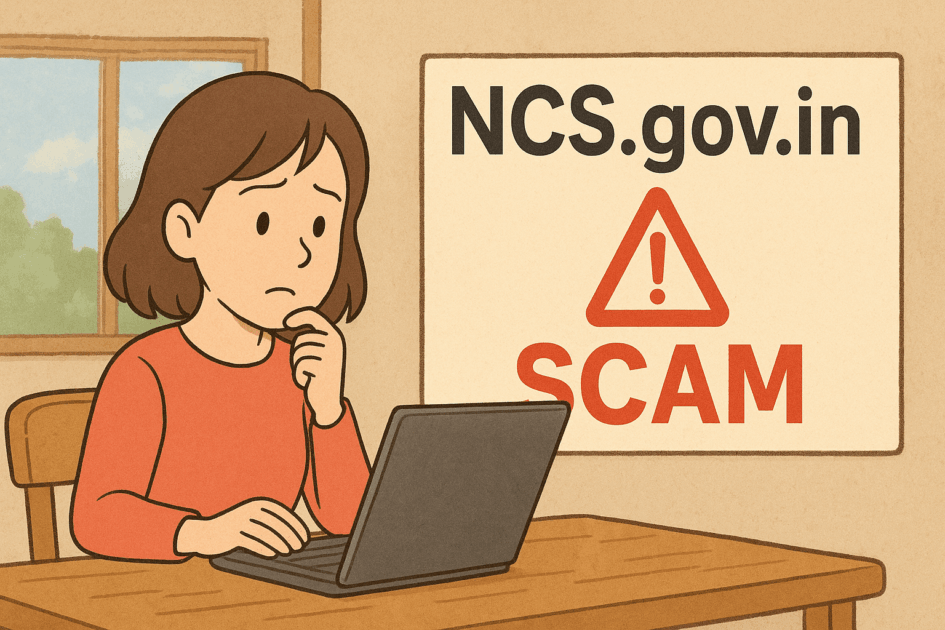Every month, thousands of Indians search for “typing jobs from home”. The idea sounds perfect: no boss, no experience needed, just type and earn. Students, homemakers, and job seekers are all drawn to those shiny ads promising ₹30,000 a month for “simple typing work.” But wait, are typing jobs from home real or just another scam?
Yes, genuine typing jobs do exist. But before you pay a “registration fee” or join some Telegram group, you need to learn how to separate the real from the fake.
How to Identify Work from Home Job Scams?
Scammers are smart. They make fake jobs look professional, but if you know what to look for, you’ll spot them instantly. Here are the warning sirens that can help you to identify work from home job scams.
- Upfront Fees – If you’re asked to pay ₹500–₹2,000 for “registration” or “software access,” walk away. No real job charges you to get started.
- No Company Presence – The so-called company doesn’t show up on Google, LinkedIn, or GST records. Names like “Typing Hub Pvt Ltd” are often just made up.
- Only WhatsApp/Telegram – If all communication happens in chat apps, with no email or website, it’s a scam. They avoid paper trails.
- Unrealistic Pay Claims – “Earn ₹5,000/day typing PDFs.” If it sounds too good for the effort, it’s fake.
- Scare Tactics – Miss a deadline? You’ll suddenly get a fake “legal notice” demanding penalties. Don’t fall for it.
- No Offer Letter – Legit employers give contracts or onboarding documents. Scammers give vague instructions in chat.
Even if you spot just one of these, it’s enough reason to stop.
How to Check If a Typing Job Is Real
Some typing jobs are legitimate, but they often appear very different from scams. Here’s how to verify:
- Google the Company – A genuine company will have a website, a LinkedIn page, or reviews. If nothing comes up, be cautious.
- Check the Hiring Process – Real employers ask for resumes, may conduct a typing test, and issue an official offer letter: WhatsApp hiring is the biggest red flag.
- No Upfront Payment – If they ask for money (registration, security, training kits), it’s fake. Legit jobs pay you, not the other way around.
- Pay Attention to Communication – Are they professional and clear? Or rushing you with big promises and vague details?
- Look for Reviews – A quick search on Quora, Google, or consumer complaint sites can reveal others’ bad experiences.
- Ask Questions – A real company won’t mind explaining the role, pay cycle, or process. Scammers avoid your questions.
Rule of thumb: If you feel pressure to say yes quickly, slow down. Scammers thrive on urgency.
What to Do If You Suspect or Have Been Scammed
Already feeling doubtful about an offer? Or worse — already sent money? Don’t panic, but act fast:
- Cut Contact Immediately – Stop replying to calls, chats, or emails. Block them everywhere.
- Protect Your Data – Never share Aadhaar, bank details, or OTPs. If you already did, move to step 3.
- Gather Proof – Save chats, payment receipts, and screenshots. They’re evidence.
- File a Cyber Crime Complaint
- Visit the website.
- Register and log in by entering your credentials
- Draft your complaint and upload supporting documents.
- Submit and note the acknowledgement number.
- Inform Your Bank – If you made a payment, alert your bank to secure your account.
- Update Passwords – Change login details for safety if you shared any credentials.
Need help?
Register with us, and we will guide you with the process to file your complaint on respective platforms and further on escalation, if required.
Conclusion
Typing jobs from home sound tempting — simple work, easy money. But the truth is, scams are louder than the real opportunities.
If you’re genuinely looking for work-from-home options:
- Never pay upfront
- Always research the company
- Trust your instincts — if it feels shady, it probably is
Yes, real typing jobs exist. But they’re modest, structured, and transparent. Scammers, on the other hand, thrive on promises of quick, effortless riches.






